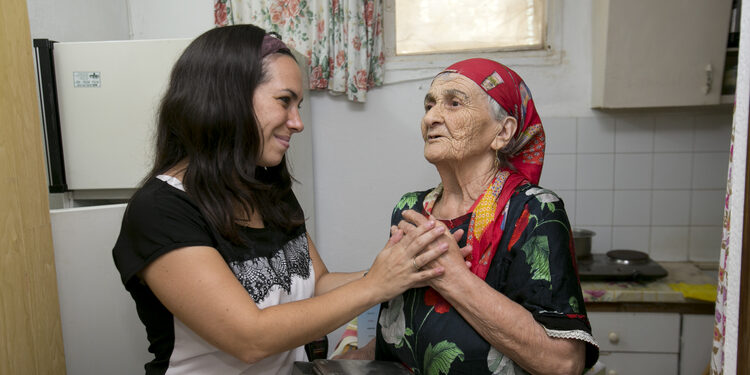Double Comfort
The Fellowship | August 6, 2019

Comfort, comfort my people,
says your God. — Isaiah 40:1
At sundown Aug. 10, Jews around the world commemorate Tisha B’Av, a time of mourning that marks the many tragedies that befell the Jewish people throughout history on this particular date. Yet from this time of sorrow comes a ray of hope. This is one of nine devotions from the timeless teachings of Rabbi Yechiel Eckstein exploring how we can find comfort in the depths of tragedy and transform darkness into light. To learn more about Tisha B’Av, download a copy of our complimentary Bible Study.
A famous story recorded in the Talmud took place shortly after the destruction of the Second Temple in Jerusalem. Rabbi Akiva and his colleagues were in mourning. When they came to Mount Scopus and witnessed the desecrated and destroyed Temple, they tore their clothing. When they got to the Temple Mount itself and saw foxes running around where the Holy of Holies once stood, they cried. But Akiva laughed.
“Why are you laughing?” they asked.
“Why are you crying?” he replied.
In near disbelief at Akiva’s question, they explained that they were looking at the holiest place in the world, where only the high priest was allowed to enter on the holiest day of the year. “Now foxes run through it! How could we not cry!” the colleagues replied. To which Akiva replied, “That is why I am laughing.”
Then he continued, “One prophet said, ‘because of you, Zion will be plowed like a field’ (Micah 3:12). Another prophet said, ‘Once again men and women of ripe old age will sit in the streets of Jerusalem … The city streets will be filled with boys and girls playing there’ (Zechariah 8:4-5). Since the words of one prophet have been fulfilled, I now know that the words of the other prophet will also be fulfilled.”
To this the rabbis exclaimed, “You have comforted us Akiva, you have comforted us.”
Through this story, Rabbi Akiva appears to be teaching us to see the glass as half-full instead of half-empty. See the positive; don’t dwell on the negative. But the truth is that Akiva was teaching us that the glass is never half anything — the glass is always full!
Everything that happens is good. Where the other rabbis saw destruction, Akiva saw building. He connected destroying the old with building the new. The destruction was part of the construction. This is why the rabbis say, “You have comforted us,” twice. Akiva comforted them by reminding them that the future will be better, and he also comforted them by explaining that the present is good, too.
Isaiah delivered a similar message just after he finished describing the destruction that will come upon the Jewish people for disobeying God. The prophet said, “Comfort, comfort my people . . .” Notice the word comfort is repeated! God, via Isaiah, was telling His people that they should find comfort in knowing that there was an end to their exile. And they should also take comfort in knowing that the exile itself was part of their redemption.
Be comforted, be comforted, my friends. Everything happening in your life is truly for the best. The future will be better, and whether you can see it right now, the present is the gift that makes the future possible.
